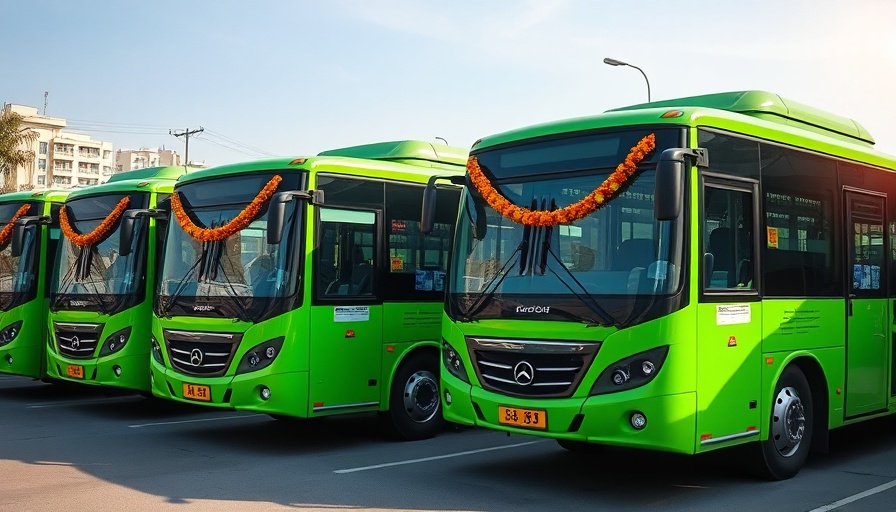
India's Electric Bus Market: A Growing Trend
In 2024, India witnessed a substantial surge in the registration of electric buses, with over 3,600 electric buses hitting the roads, according to recent reports. This development signals the nation's commitment to promoting sustainable public transport, though it still has a long way to go in reducing its reliance on internal combustion engine (ICE) vehicles. With diesel buses still dominating the market, comprising around 41,000 units out of a total of 58,936 new buses registered, the shift towards electric is at a gradual pace but is nonetheless crucial for reducing urban pollution and advancing towards greener transportation solutions.
Tata Motors: Leading the Charge
Leading the electric bus segment is Tata Motors, which holds a commanding 40% market share with 1,431 registrations in the heavy passenger vehicle (HPV) category. Following closely are Olectra Greentech and JBM Auto with market shares of 17.7% and 15.6%, respectively. This competitive landscape indicates a vibrant market where manufacturers are increasingly addressing the growing demand for electric public transport solutions.
Government Initiatives Boosting Adoption
The Indian government is actively promoting the use of electric buses through financial incentives. The PM Electric Drive Revolution In Innovative Vehicle Enhancement (PM E-DRIVE) scheme allocated about 43.91 billion rupees for 14,028 electric buses. To date, nearly 9,800 electric buses have been approved for subsidies under this scheme. Another initiative, the PM-eBus Sewa-Payment Security Mechanism, has a budget of approximately 34.35 million rupees aimed at funding over 38,000 electric buses by 2028/2029.
The Future of Electric Buses in India
Looking ahead, the future of electric buses in India seems promising. Major orders are already in place, suggesting that the demand for electric public transport will continue to rise. For instance, Chartered Speed recently won a contract for around 900 electric buses across various Indian states. Similar initiatives are fostering a positive environment for electric mobility, providing opportunities for sustainable development that aligns with global trends.
Environmental and Economic Implications
The transition to electric buses not only addresses environmental concerns regarding air quality and greenhouse gas emissions but also presents economic opportunities. Investments in electric buses can create new jobs in manufacturing, infrastructure development, and maintenance. Furthermore, as technology advances, the cost of production and operation is expected to decline, making electric buses a more viable option for both government and private operators.
Conclusion: Join the Green Revolution
As the electric bus market continues to evolve, homeowners and businesses interested in solar and green energy solutions should consider the intersection of these technologies. The shift towards electric public transport aligns with broader clean energy initiatives, presenting opportunities for sustainable living and investments in green technologies.
Engaging with electric and solar solutions not only contributes positively to the environment but also serves as a prudent investment for the future. To further explore how you can integrate solar energy into your daily life and transportation needs, consider initiating dialogue within your community or seeking out local renewable energy providers.
 Add Row
Add Row  Add
Add 




Write A Comment